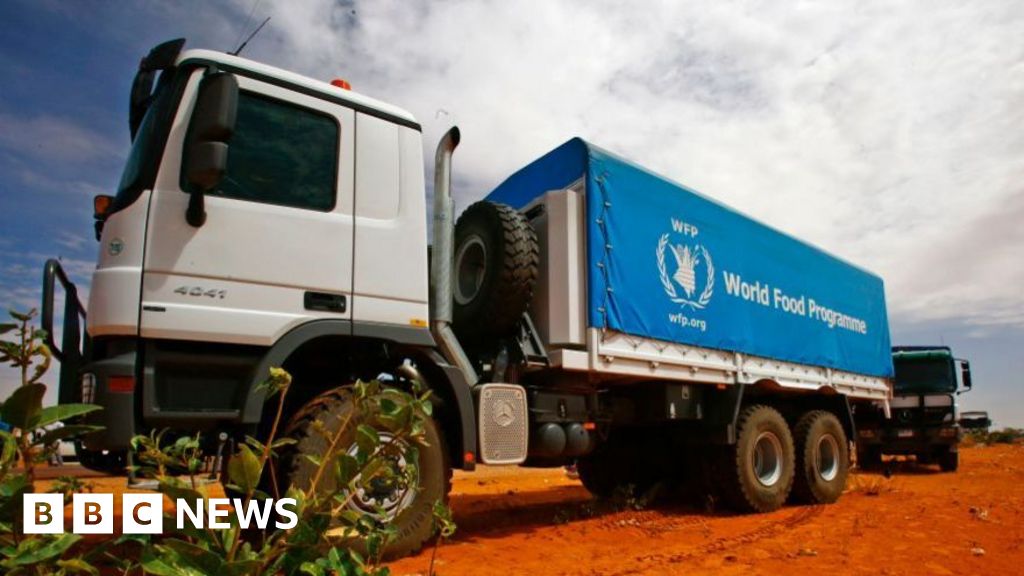Sudan's army denies bombing convoy taking aid to famine-hit area

Sudan Army Denies Bombing Aid Convoy in Darfur Amid Famine Concerns
Sudan's army has refuted allegations that it bombed a World Food Programme (WFP) convoy carrying vital aid to a famine-stricken area in the Darfur region. The denial comes after the paramilitary Rapid Support Forces (RSF) accused the army of conducting an airstrike on Wednesday in Mellit, a town currently under RSF control.
According to the UN agency, a drone struck the 16-vehicle convoy, resulting in the destruction of three lorries due to fire. While the WFP confirmed that all staff members traveling with the convoy are safe, the incident highlights the perilous conditions facing humanitarian operations in Sudan, which has been embroiled in a brutal civil war since April 2023.
Escalating Humanitarian Crisis
The conflict between the Sudanese army and the RSF, triggered by a power struggle between the two factions, has precipitated one of the world's most severe humanitarian crises. The RSF, while lacking its own air force, utilizes drones, as does the Sudanese army. This incident represents just the latest in a series of attacks targeting humanitarian efforts within the country.
"Humanitarian staff and assets must never be a target," the WFP stated, emphasizing the urgent need for both warring parties to adhere to international humanitarian law and ensure the safe passage of aid. The convoy was en route to a village near Mellit, an area designated as "famine-affected," located approximately 90km (56 miles) northwest of el-Fasher.
El-Fasher Under Siege
El-Fasher, the army's last stronghold in the Darfur region, has been under siege by the RSF for over a year. The city has become a central battleground in the ongoing civil war, with the RSF intensifying its efforts to seize control in recent weeks. This escalation has further exacerbated the already dire humanitarian situation in the region.
Both the Sudanese army and the RSF have faced accusations of weaponizing starvation by impeding aid deliveries and looting food supplies. In June, five aid workers were killed in a similar attack in el-Fasher, underscoring the extreme risks faced by those attempting to provide assistance to vulnerable populations.
Devastating Impact of Conflict
The Sudanese civil war has resulted in the deaths of tens of thousands of people and the displacement of an estimated 12 million individuals from their homes. More than 4.5 million refugees, predominantly women and children, have sought refuge in neighboring countries, placing immense strain on already stretched resources.
Expert Perspective
Dr. Ahmed Soliman, a researcher at Chatham House specializing in the Horn of Africa, notes that "the targeting of aid convoys in Sudan reflects a deliberate strategy by both sides to weaken their opponents by denying access to essential resources. This tactic, unfortunately, has become a hallmark of the conflict, exacerbating the suffering of civilians and hindering efforts to alleviate the humanitarian crisis."
Historical Context
Darfur has a long history of conflict and instability. The region experienced a major humanitarian crisis in the early 2000s, marked by widespread violence and displacement. The current conflict is a continuation of this cycle of violence, fueled by political rivalries, ethnic tensions, and competition over resources. The International Criminal Court has issued arrest warrants for several individuals, including former President Omar al-Bashir, for alleged war crimes and crimes against humanity committed in Darfur.
Current Challenges
The obstruction of aid deliveries and the targeting of humanitarian workers are major impediments to addressing the famine crisis in Darfur. The international community has repeatedly called for a ceasefire and for both sides to allow unimpeded access for humanitarian assistance. However, these calls have largely gone unheeded.
Tens of thousands dead 12 million displaced 4.5 million refugees
Call for Action
The WFP and other humanitarian organizations are urging the warring parties to immediately cease attacks on aid convoys and to ensure the safe passage of humanitarian assistance to those in need. The international community must also increase its efforts to provide financial support and diplomatic pressure to end the conflict and alleviate the suffering of the Sudanese people.
Originally sourced from: BBC News Africa
